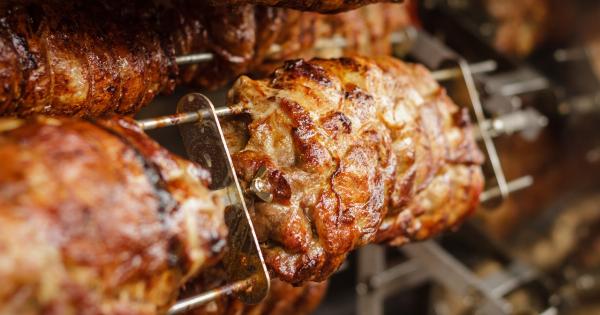Understanding the psychology behind our dietary temptations is crucial in order to develop healthy eating habits and make informed choices about our food intake.
Many of us struggle with cravings and find it difficult to resist the allure of unhealthy foods. However, by delving into the psychological factors influencing our dietary temptations, we can gain valuable insights into why we are drawn to certain foods and how to overcome these temptations.
The Role of Emotional Eating
Emotional eating is one of the primary reasons behind our dietary temptations. In times of stress, sadness, or even happiness, many individuals turn to food for comfort.
This is often driven by the release of certain chemicals in our brain, such as dopamine, which are associated with pleasure and reward. When we consume foods that we find pleasurable, our brain reinforces the behavior, leading to a cycle of emotional eating.
Environmental Cues and Food Marketing
Food marketing and environmental cues play a significant role in our dietary temptations. The presence of food advertisements and the availability of unhealthy snacks in our surroundings can influence our choices without us even realizing it.
Research has shown that individuals are more likely to consume foods that are easily accessible and visually appealing. Understanding the influence of these environmental cues on our decision-making can help us make conscious choices and resist unhealthy temptations.
The Impact of Social Factors
Our social environment has a considerable impact on our dietary temptations. Our friends, family, and colleagues often play a role in influencing our food choices.
For example, if those around us are indulging in unhealthy foods, we may feel compelled to join in. Additionally, social gatherings and celebrations are often centered around food, making it harder to resist temptations. By recognizing these social factors and finding ways to navigate them, we can better manage our dietary temptations.
The Power of Habits
Habits are deeply rooted in our behaviors and can greatly contribute to our dietary temptations. If we have developed a habit of consuming sugary snacks or drinking sodas, it becomes increasingly difficult to break free from these patterns.
Our brains are wired to seek out familiar and routine behaviors, making it challenging to adopt new, healthier habits. Understanding the power of habits can help us work towards replacing unhealthy temptations with better alternatives.
Stress and Cravings
Stress is a common trigger for cravings and dietary temptations. When we are stressed, our bodies release cortisol, a hormone that can increase our appetite and drive us to seek out comfort foods.
These foods are often high in fat and sugar, providing temporary relief and a sense of comfort. By finding alternative ways to manage stress, such as exercise or relaxation techniques, we can reduce the impact of stress on our dietary choices.
The Role of Food as a Reward
Many of us view food as a reward for our accomplishments or as a means to treat ourselves. This reward-based mindset can lead to a cycle of indulgence and overconsumption.
Additionally, the association of certain foods with positive experiences or emotions can make it difficult to resist temptations. It is important to reframe our thinking around food and find other non-food-related rewards to avoid falling into this trap.
Biological Factors and Cravings
Biological factors can also contribute to our dietary temptations. Our bodies have evolved to crave certain types of foods that provide essential nutrients for survival.
For example, our craving for sweet foods may be linked to our need for quick energy sources. However, in today’s environment where unhealthy foods are readily available, these biological cravings can lead us astray. Understanding these biological factors can help us make more mindful choices and override our natural instincts.
Self-Control and Willpower
Self-control and willpower play a significant role in resisting dietary temptations. However, our willpower is not limitless and can easily be depleted throughout the day.
Making repeated decisions to resist temptations can exhaust our self-control reserves, making it harder to resist future cravings. Building better self-control habits and structuring our environment to minimize temptations can help mitigate the impact of depleted willpower.
Developing Healthy Coping Mechanisms
To overcome our dietary temptations, it is important to develop healthy coping mechanisms. Finding alternative activities or hobbies that provide comfort or stress relief can help redirect our focus away from food.
Engaging in regular exercise, practicing mindfulness, and seeking support from friends and professionals can all contribute to developing healthier coping mechanisms and reducing reliance on food for emotional fulfillment.
Conclusion
Understanding the psychology behind our dietary temptations is key to making sustainable changes in our eating habits.
By recognizing the influence of emotional factors, environmental cues, social influences, and biological factors, we can work towards developing healthier coping mechanisms and breaking free from the cycle of unhealthy temptations. With patience, self-awareness, and a willingness to explore new habits, we can create a healthier relationship with food and prioritize our overall well-being.
























